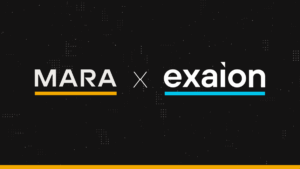TL;DR
- Blockchain is redefining the sports industry through immutable record-keeping and the optimization of ticketing, sponsorship, and merchandising.
- Fan tokens and platforms like Socios.com are driving an active engagement model, with voting rights, exclusive benefits, and new revenue opportunities.
- Examples from FC Barcelona, UFC, and Formula 1 confirm that blockchain improves transparency while deepening participation and reliability.
The sports industry today faces major challenges in transparency, security, and fan loyalty. Blockchain technology has positioned itself as a solution capable of immutably recording operations, optimizing ticket sales and resales, authenticating merchandise, and empowering both clubs and fans. Below, we explore how various real-world innovations are changing the rules of the game.
Transparency and Trust in Every Transaction
The global sports market moves billions of dollars annually, traditionally relying on centralized databases vulnerable to fraud. However, with the integration of blockchain technology:
-
All ticket sales and resales are recorded on a public ledger, eliminating scalping through smart contracts with preset limits.
-
Every sponsorship deal and player transfer is traceable in detail — from contract clauses to payment terms — reducing the risk of disputes.
-
Digital collectibles like fan tokens and NFTs carry immutable metadata certifying their origin, making them impossible to counterfeit.
As a result, clubs, sponsors, and fans can verify every transaction with full confidence in its integrity.

New Revenue Streams and Deeper Engagement
Fan tokens are reshaping the relationship between supporters and teams. Thanks to platforms like Socios.com:
-
Fans vote on key decisions (kit designs, marketing campaigns), directly influencing club life.
-
They gain access to exclusive content, VIP experiences, and special promotions, strengthening their sense of belonging.
-
They can trade digital rewards, which fluctuate in value based on demand, creating new income opportunities.
Additionally, initiatives like Chiliz Chain aim to enhance this ecosystem by providing custom infrastructure to enable tokenized projects for ticketing, merchandising, and sponsorship.
Blockchain’s Challenges and Solutions
Despite its advantages, adopting blockchain in sports comes with three core obstacles:
-
Infrastructure and scalability: Running nodes and handling high transaction volumes demands significant technical and financial resources.
-
Resistance to change: Traditional federations and operators are often reluctant to overhaul longstanding operational models.
-
Regulation and privacy: Legal frameworks are needed to balance transparency with personal data protection.
To address these issues, layer 2 solutions and private, customized blockchains — like Chiliz Chain — have emerged, offering instant transactions, high throughput, and pre-configured smart contracts.

Adoption Cases and Tangible Results
Several examples already confirm blockchain’s impact in sports:
-
FC Barcelona enabled fans to vote on a mural design for the team’s locker room, strengthening emotional ties with supporters.
-
UFC allowed fans to help decide fighter bonus payouts, increasing audience involvement.
-
Formula 1 adopted blockchain systems to validate real-time telemetry, improving the reliability of data for teams and commentators.
On the other hand, LaLiga, in partnership with CoinW, is decentralizing access to performance statistics, setting a new standard for federations seeking to optimize their processes.

Looking Ahead: What Experts Expect
Experts foresee disruptive applications that will shape the next decade in the sports industry:
-
Tokenized athlete contracts allowing fans to invest in their idols’ future success.
-
Anti-doping systems on blockchain, ensuring immutable records of every test and result.
-
Decentralized leagues managed by the community, where fans take part in both sporting and financial decisions.
-
Immersive virtual reality experiences, where tokens unlock exclusive spaces and virtual meetups with athletes.

Conclusion
Blockchain has the potential to redefine the foundations of sports. By bringing transparency, new revenue channels, and unprecedented engagement opportunities, this technology offers everything needed to deliver innovative and trustworthy experiences. Although it requires a high degree of adaptation and regulatory cooperation, current case studies and expert projections suggest that the clubs and organizers embracing blockchain technology will be best equipped to meet the expectations of today’s audiences










